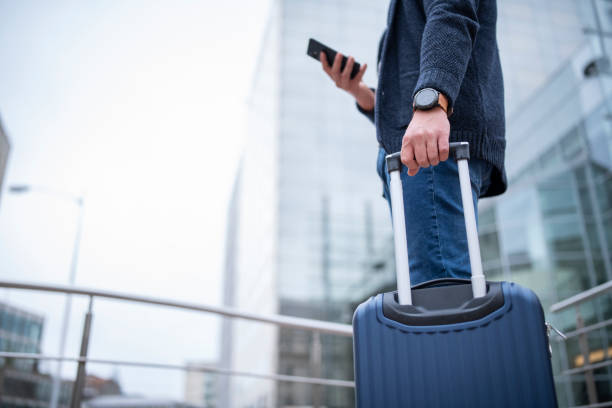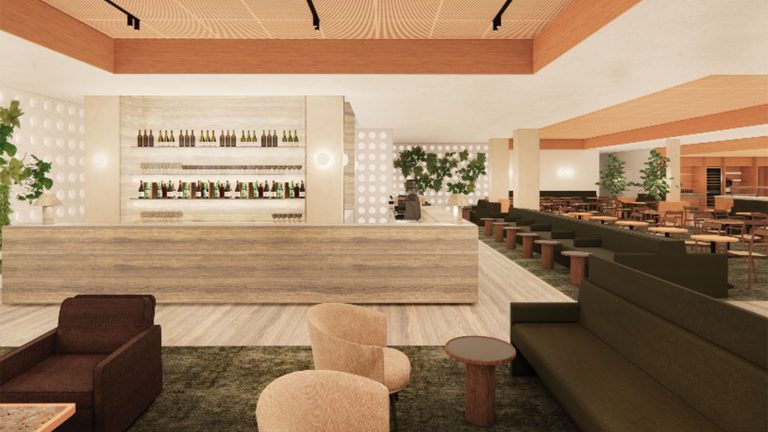There’s a new breed of business traveller in boardrooms, airport lounges and hotel suites around the world in 2019 – and they’re healthier, happier and more productive than ever (yes, really!).
Why? Because companies have finally realised that travelling for business isn’t as glamourous as it’s made out to be – particularly when you have to fly in and out of a different city within 24-hours – and are starting to put their employees first, with the benefits flowing through to both the company and the business travellers alike.
According to the Global Business Travel Association, the business travel market worldwide will be worth a staggering $1.6 trillion by 2020. Yet all frequent flyers know that work-related travel isn’t always smooth sailing – and for someone who has spent a lot of time in the airport lounge after a flight has been delayed or cancelled, I can relate.
From cancelled flights and missed connections, to last-minute changes and extended periods of time away from family and friends, to a steady stream of take-away and restaurant meals, and poor sleep patterns thanks to criss-crossing time zones – it’s no wonder business travellers aren’t always in the best shape, either physically or mentally.
A Harvard Business Review article, Just How Bad is Business for Your Health? recently found that frequent business travel increased the risk of poor health consequences such as alcohol dependence, anxiety, obesity and depression. The question for companies is, what to do about it? The article’s author suggests the solution lies in businesses ‘providing support in the form of education, training, and a corporate culture that emphasises healthy business travel’.
I couldn’t agree more. Whether this takes the form of providing on-board care packs for frequent flyers, booking gym, yoga, Pilates or meditation sessions into the business travel schedule, supplying travellers with a destination guide for fitness facilities and healthy eating outlets in close proximity to their accommodation, or building in a pre or post-meeting leisure day for travellers to acclimatise and relax into their destination rather than jumping from the airport into immediate meetings – the options to improve the business travel experience for employees are virtually endless.
It’s been proven that companies that recognise and adapt to their business traveller needs stand to benefit from happier, more productive employees, and will simultaneously save money and gain better transparency and control over travel spend in the process.
Another trend in this area is the growing shift towards ‘consumerisation’, which means encouraging and allowing corporate travellers to use the travel technology they use in their personal lives in their professional travel.
Uber is an obvious choice here, with more businesses now setting up Uber accounts attached to corporate credit cards to facilitate transport bookings, tracking and payments for staff using a platform they’re already accustomed to, and Airbnb is another example.
This is because business travellers are seeking the same instant gratification, convenience and simplicity in work-related travel that they enjoy in their personal lives, and they’re frustrated when they can’t achieve it with clunky, counter-intuitive corporate travel tools.
Making business travel better has always been a priority for us at Goldman Travel Corporation. This year, we redesigned our analytics platform as well as our data and reporting programs, so that those booking corporate travel can do so stress-free in a few simple steps. Since launching our new platform, we’ve had a steady stream of Executive Assistants calling in to personally thank us, saying our new platform – designed entirely with the happiness and busy schedules of corporate travellers in mind – has been ‘life-changing’. Not only does seamless travel make the lives of these frequent business flyers easier, but it also means that they can enjoy less time in an airport lounge and more time doing what they love.
- Just How Bad is Business for Your Health? Harvard Business Review, May 2018, Associate Professor Andrew Rundle
-
10 Business Travel Trends for 2019, Skift Report 2018



